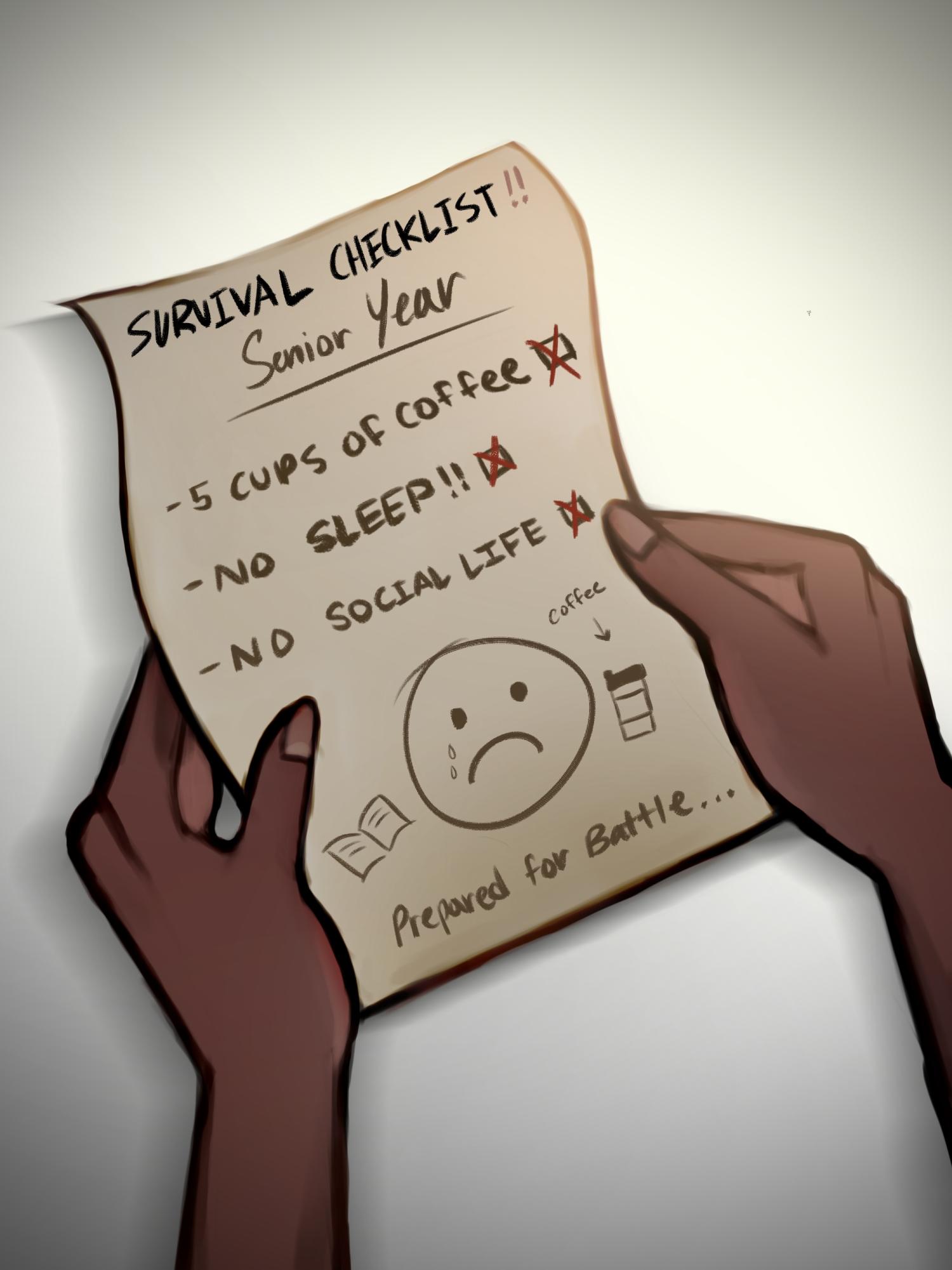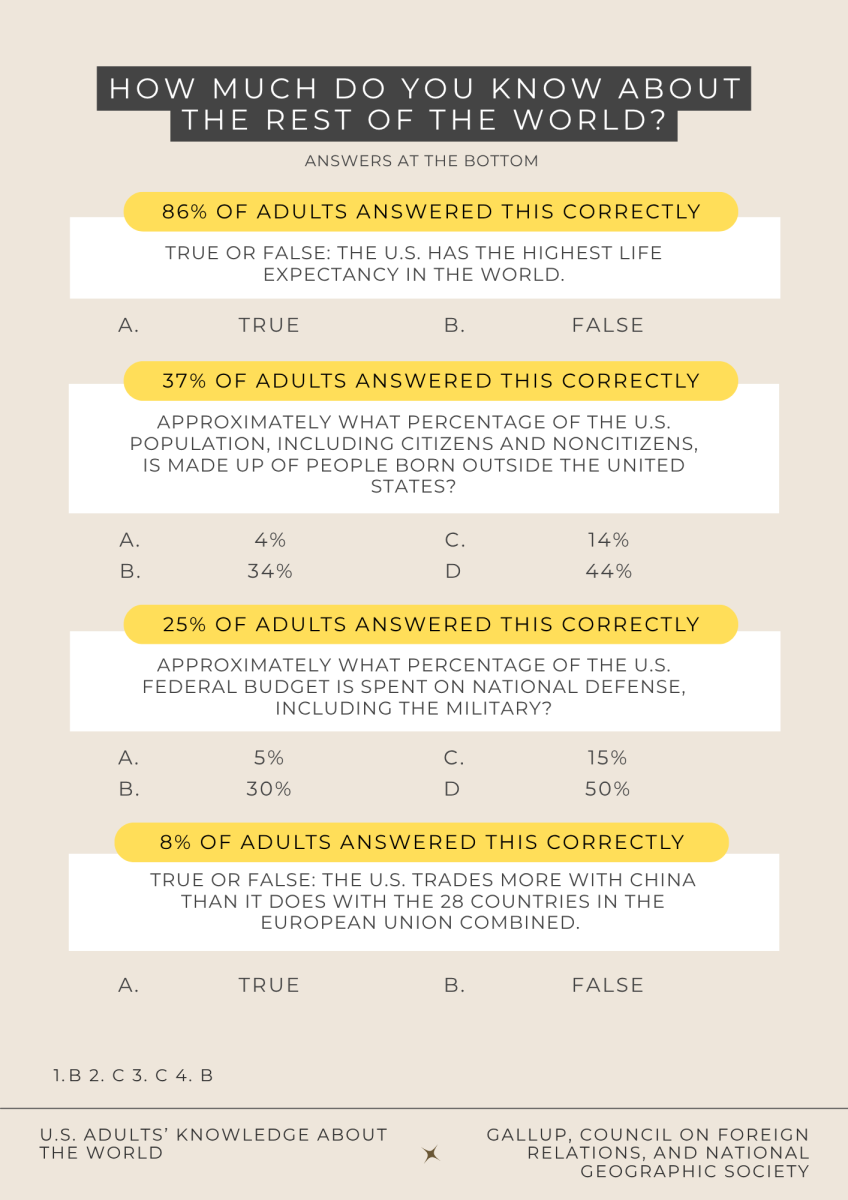Junior year has long had a reputation for being the hardest year in high school. Students often pile on AP classes, prepare for SAT and ACT tests, and build their extracurricular resumes, much of which exists inside of school.
Extracurriculars become more intense, with students fighting for leadership positions and balancing hours of practice, rehearsals or volunteer work to build their resumes. Surveys on senior year stress frequently highlight college applications, paying for school and preparing for life after graduation as major sources of anxiety. By the end of the year, many juniors experience burnout from trying to excel in every area at once.
Contrastingly, the challenges of senior year go beyond just maintaining a strong academic record and extracurricular involvement. They blend college applications, work and social life, and senioritis into one exhausting final stretch, making it feel harder than junior year. According to College Data, many seniors report feeling overwhelmed by the pressure of making major life decisions while managing their current responsibilities.

College Applications
For many seniors, the college application process begins before school even starts, requiring months of research, essay writing and recommendation requests. If possible, start over the summer. Creating a Common Application account, researching schools and drafting essays early can help avoid last-minute stress. Deadlines creep up faster than expected and first-semester grades remain critical to college admissions.
On average, students dedicate approximately 20 to 30 hours to the application process. This time frame can vary based on the number of applications submitted and the specific requirements of each institution. Balancing this commitment with academic responsibilities and extracurricular activities entails effective time management.
Key deadlines to monitor include Early Action and Early Decision applications, typically due in early to mid-November, with decisions released around mid-December. Regular Decision deadlines usually fall between Jan 1. and Feb 1.
Another important deadline to keep in mind is for the Free Application for Federal Student Aid (FAFSA), which is the form students must complete to be considered for federal financial aid, including grants, loans and work study opportunities. This is one of the main ways students can access financial help from the government to pay for college.
Work and Social Life
Many seniors juggle part-time jobs, sports and leadership roles while trying to enjoy their final year. Creating a weekly schedule that includes time for applications, homework and self-care can help keep everything in check. Prioritization is key, some activities may need to take a backseat during application season and that’s perfectly fine.
Maintaining a healthy balance between responsibilities and social life means learning how to say “no” when necessary and being intentional with your time. It’s okay to skip a hangout or reduce work hours temporarily if it means preserving your mental health or meeting important deadlines. Consider using planning tools like Google Calendar or a physical planner to block off time for school, work and breaks. Staying organized not only helps reduce stress but also prevents mental exhaustion.
A well-balanced schedule isn’t just about getting things done, it also creates space for rest and fun. Senior year goes by fast and being intentional with your time can help you stay present for the moments that matter. Finding that balance allows you to finish strong while still making memories along the way.
Senioritis
After surviving the first semester and sending in mid-year grades, seniors face a whole new challenge: senioritis. Once college decisions are in and commitments are made, motivation plummets and school starts to feel pointless. Assignments that once seemed important now feel like unnecessary obstacles to graduation and procrastination becomes second nature.
One way to stay on track is to set personal goals for the final months of school. Whether it’s finishing with a strong GPA, maintaining a certain grade in classes or simply staying engaged throughout lessons, having a reason to keep pushing forward can make a difference.
Another effective strategy is to create a routine. Even when classes feel slower or more relaxed, sticking to a consistent schedule, like setting aside dedicated homework time or waking up at the same hour, helps keep your brain in “school mode.” Staying involved in clubs, sports or leadership roles can also make school feel more meaningful and less like a chore. Rewarding yourself with small incentives, such as treating yourself to coffee or enjoying a movie night with friends after completing assignments, can also boost motivation and reduce feelings of burnout.
It’s crucial to remember that a significant decline in academic performance during senior year can have serious consequences. According to the College Board, every year, colleges rescind offers of admission, put students on academic probation or alter financial aid packages due to senioritis. Therefore, maintaining your academic performance is essential to ensure your college plans remain intact.
The last stretch of senior year is tough, but staying focused can make it feel more manageable. Even when motivation fades, keeping up with schoolwork and responsibilities ensures a smoother transition to college. While the temptation to check out is strong, small efforts to stay on top of things can make a huge difference. Looking back, balancing everything wasn’t about perfection, it was about progress.









